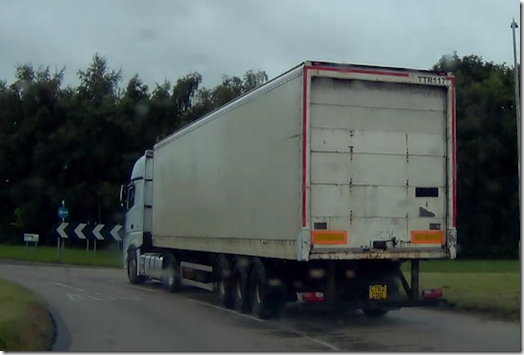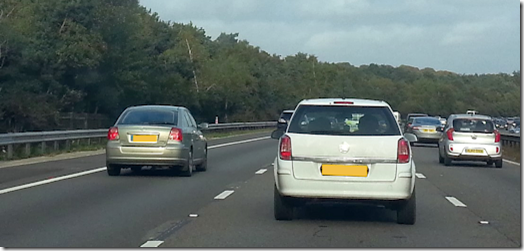Quite simply: you tell the truth. Or, rather, you correct falsehoods.
I’m getting sick and tired of the constant attempts to rewrite history and make it sound like women invented everything. It’s bad enough that the BBC has already declared that it wasn’t Charles Babbage, but Ada Lovelace, who invented the first programmable computer, but this latest article, titled “BBC 100 Women: Nine things you didn’t know were invented by women” takes the biscuit.
Let’s take a look at each of the nine entries.
Grace Hopper invented Computer Software
No she didn’t. She created a compiler-like application in 1952. It was not a true compiler – the first serious one was created in Manchester by Alick Glennie, also in 1952. The first fully-fledged compiler came from a team led by John Backus at IBM in 1957. The world has currently convinced itself that Ada Lovelace wrote the first computer program, even though this was precisely what Babbage was trying to do with his work using punched cards, and which never came to fruition – so Lovelace’s “program” never ran anyway.
The first “stored-program” computer was built in Manchester and ran its first program – software – in 1948.
There’s no doubt that Grace Hopper holds an important position in the history of computer programming, but it isn’t anywhere near as far up the ladder as some would have you believe, and it’s definitely not right at the top.
Dr Shirley Ann Jackson invented Caller ID and Call Waiting
No she didn’t. Theodore Paraskevakos developed a caller ID system in 1968 in Greece. He took out 20 patents between 1969 and 1975, and they predate all others.
Famous Black Inventors (Jackson is African-American) says:
Dr. Jackson conducted breakthrough basic scientific research that enabled others to invent the portable fax, touch tone telephone, solar cells, fiber optic cables, and the technology behind caller ID and call waiting.
In other words, she was involved in the theoretical side of what eventually led to the modern system we use. Along with many other people.
Mary Anderson invented the Windscreen Wiper
No she didn’t. The first ideas seem to have come from Jozef Hofmann and Mills Munitions of Birmingham. At least three people patented wiping systems at the same time – Mary Anderson, Robert Douglass, and John Apjohn. Douglass filed his patent three months before Anderson, Apjohn three months after. Anderson’s might have been better, using an arm instead of a moving brush-bar, but she wasn’t the first to come up with the idea of a wiper.
Olga D Gonzalez-Sanabria invented Space Station Batteries
No she didn’t. Wikipedia says:
González-Sanabria played an instrumental role in the power systems area with the development of the “Long Cycle-Life Nickel-Hydrogen Batteries”. Her technical contributions helped to enable the International Space Station power system.
Contributions and involvement are obviously not be sneezed at, but it’s wrong to overstate them.
Josephine Cochrane invented the Dishwasher
No she didn’t. The first dishwasher was patented by Joel Houghton in 1850. A later patent was awarded to L. A. Alexander in 1865. Cochrane’s patent was awarded in 1887, and she was “assisted” by George Butters. The first dishwasher that was anything like today’s modern devices was patented by William Livens in 1924.
Marie Van Brittan Brown invented the Home Security System
No she didn’t. Not on her own, anyway. Wikipedia says:
…the originator of the home security system (patent number 3,482,037) in 1966, along with her husband Albert Brown…
Ann Tsukamoto isolated Stem Cells
No she didn’t. She was a “co-patentee” (out of four) of a process to isolate human stem cells.
Stephanie Kwolek invented Kevlar
That one’s correct, though the BBC neglects to mention that is was an accidental discovery and she had little or no involvement in the subsequent development of Kevlar and its uses, and doesn’t seem to have realised its potential.
Elizabeth Magie invented Monopoly
No she didn’t. Magie invented The Landlord’s Game – a game designed to spread the teachings of the 19th Century American economist, Henry George – specifically, his “single tax” theory. She was awarded a patent in 1904. Various similar games came and went between 1903 and the 1930s, and all dealt with the sale and development of land.
Monopoly was sold for the first time in 1935. Parker Brothers purchased the rights from Charles Darrow, but when they realised Darrow was not the sole inventor, and had borrowed ideas from Magie’s game, they also bought rights to Magie’s patent – bearing in mind Monopoly was being sold by Parkers four years before Magie marketed the third version of The Landlord’s Game, in 1939. Monopoly was not the same game.
There is no doubt that these women were major contributors to the fields they were involved in, but it is wrong to talk their involvement up.
Women should have equal opportunities. They should have equal pay for doing the same work as a man. But we have to face the fact that women and men are different, and just as there are things a woman can do better than most men, equally there are things men can do better than most women.
Re-writing history won’t change that.
 Some questions in life just don’t have a viable answer to them.
Some questions in life just don’t have a viable answer to them. About bloody time. An email alert from DVSA advises that
About bloody time. An email alert from DVSA advises that  Over the years, I’ve taught many pupils whose ability behind the wheel gave me cause for concern. In some cases, it seemed that they would never learn simple clutch control, gear changing, and steering, let alone roundabouts and complex road junctions, and even when they reached test standard, it was obvious they still had issues. To this day, I sometimes ponder over what I am helping to release on to the roads.
Over the years, I’ve taught many pupils whose ability behind the wheel gave me cause for concern. In some cases, it seemed that they would never learn simple clutch control, gear changing, and steering, let alone roundabouts and complex road junctions, and even when they reached test standard, it was obvious they still had issues. To this day, I sometimes ponder over what I am helping to release on to the roads. I’m starting to get seriously pissed off with some of the prats on the roads these days. As if it wasn’t bad enough that Nottingham City and Country Councils have got road works on virtually every route into and out of the city, you have people like the driver of this white Nissan Qashqai, registration WN15 UXV on Tuesday, 8 August 2017.
I’m starting to get seriously pissed off with some of the prats on the roads these days. As if it wasn’t bad enough that Nottingham City and Country Councils have got road works on virtually every route into and out of the city, you have people like the driver of this white Nissan Qashqai, registration WN15 UXV on Tuesday, 8 August 2017.
 And while I’m on this subject, a similar thing happened this afternoon on the A60 heading towards Mansfield. I was on another lesson, and we’d stopped at lights in Daybrook. A white lorry, registration LT62 CDO or CT62 CDO – unmarked, but identified with the container code TTR117 – deliberately tried to run us into oncoming traffic.
And while I’m on this subject, a similar thing happened this afternoon on the A60 heading towards Mansfield. I was on another lesson, and we’d stopped at lights in Daybrook. A white lorry, registration LT62 CDO or CT62 CDO – unmarked, but identified with the container code TTR117 – deliberately tried to run us into oncoming traffic. The Brexit fiasco leaps from one incompetent episode to another. The
The Brexit fiasco leaps from one incompetent episode to another. The  I just caught
I just caught  This
This